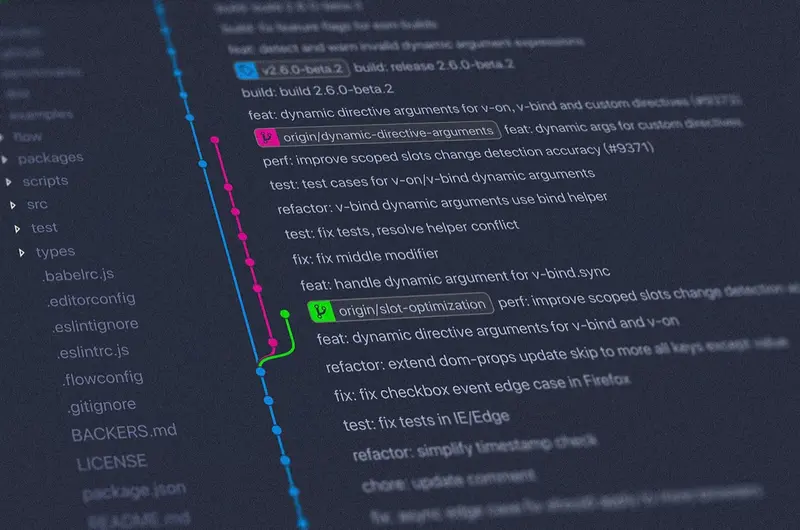Setting up your own GitLab server gives you complete control over your code repositories, CI/CD pipelines, and team collaboration workflows. I’ve deployed GitLab on Alpine Linux for multiple organizations, and it’s an excellent combination of lightweight infrastructure with powerful DevOps capabilities.
Alpine Linux’s minimal footprint makes it perfect for GitLab servers - you get enterprise-grade Git hosting without the resource overhead of heavier distributions. Plus, the security benefits of Alpine’s hardened design are crucial for protecting your source code.
Why GitLab on Alpine Linux
Running GitLab on Alpine brings several advantages:
- Resource efficiency with Alpine’s minimal base system
- Enhanced security through Alpine’s hardened kernel and packages
- Fast deployment with quick boot times and efficient package management
- Cost savings from reduced resource requirements
- Better performance with optimized system stack
What You’ll Accomplish
- Install GitLab Community Edition with all dependencies
- Configure PostgreSQL and Redis for optimal performance
- Set up SSL certificates for secure access
- Configure GitLab CI/CD runners
- Implement backup and monitoring solutions
- Optimize GitLab for production workloads
Prerequisites
Before starting, ensure you have:
- Alpine Linux 3.17 or newer with at least 4GB RAM
- 20GB+ storage space for repositories and artifacts
- Domain name pointing to your server (for SSL setup)
- Root access or sudo privileges
- Basic understanding of Git and DevOps concepts
Let’s start by updating the system:
apk update && apk upgradeInstalling Dependencies
System Dependencies
What we’re doing: Installing all required packages for GitLab and its components.
# Install essential packages
apk add curl wget git openssh openssl ca-certificates \
postfix ruby ruby-bundler python3 py3-pip \
nodejs npm yarn tzdata
# Install compilation tools
apk add build-base cmake libffi-dev openssl-dev \
zlib-dev readline-dev yaml-dev sqlite-dev \
postgresql-dev redis
# Install runtime libraries
apk add libxml2-dev libxslt-dev libgcrypt-dev \
imagemagick-dev libre2-devPostgreSQL Installation and Setup
What we’re doing: Installing and configuring PostgreSQL as GitLab’s primary database.
# Install PostgreSQL
apk add postgresql postgresql-contrib postgresql-dev
# Initialize PostgreSQL database
rc-update add postgresql default
service postgresql setup
service postgresql start
# Configure PostgreSQL for GitLab
sudo -u postgres psql << 'EOF'
CREATE USER gitlab WITH PASSWORD 'secure_gitlab_password' CREATEDB;
CREATE DATABASE gitlabhq_production OWNER gitlab;
CREATE EXTENSION IF NOT EXISTS pg_trgm;
CREATE EXTENSION IF NOT EXISTS btree_gist;
\q
EOF
# Configure PostgreSQL settings
cat >> /etc/postgresql/postgresql.conf << 'EOF'
# GitLab Optimizations
shared_buffers = 256MB
effective_cache_size = 1GB
checkpoint_completion_target = 0.9
wal_buffers = 16MB
default_statistics_target = 100
random_page_cost = 1.1
effective_io_concurrency = 200
work_mem = 4MB
min_wal_size = 1GB
max_wal_size = 4GB
max_worker_processes = 8
max_parallel_workers_per_gather = 4
max_parallel_workers = 8
max_parallel_maintenance_workers = 4
EOF
# Restart PostgreSQL to apply changes
service postgresql restartRedis Installation and Configuration
What we’re doing: Setting up Redis for GitLab’s caching and session storage.
# Install Redis
apk add redis
# Configure Redis for GitLab
cat > /etc/redis.conf << 'EOF'
# Basic Configuration
port 6379
bind 127.0.0.1
timeout 0
tcp-keepalive 300
# Memory Management
maxmemory 256mb
maxmemory-policy allkeys-lru
# Persistence
save 900 1
save 300 10
save 60 10000
rdbcompression yes
rdbchecksum yes
dbfilename gitlab-redis.rdb
dir /var/lib/redis/
# Security
requirepass gitlab_redis_password
# Logging
loglevel notice
logfile /var/log/redis/redis.log
# Performance
tcp-backlog 511
databases 16
EOF
# Start and enable Redis
rc-update add redis default
service redis start
# Test Redis connection
redis-cli -a gitlab_redis_password pingInstalling GitLab Community Edition
GitLab Installation
What we’re doing: Installing GitLab CE using the official installation method.
# Add GitLab repository
curl -s https://packages.gitlab.com/install/repositories/gitlab/gitlab-ce/script.alpine.sh | bash
# Install GitLab CE
apk add gitlab-ce
# Alternative: Manual installation from source
# This gives more control but requires more configuration
# Create GitLab user
adduser -D -s /bin/bash git
adduser git git
# Download GitLab source
cd /home/git
sudo -u git git clone https://gitlab.com/gitlab-org/gitlab-ce.git -b stable gitlab
# Install GitLab from source (if preferred)
cd /home/git/gitlab
sudo -u git cp config/gitlab.yml.example config/gitlab.yml
sudo -u git cp config/secrets.yml.example config/secrets.ymlGitLab Configuration
What we’re doing: Configuring GitLab with our PostgreSQL and Redis settings.
# Create GitLab configuration
cat > /etc/gitlab/gitlab.rb << 'EOF'
# Basic Configuration
external_url 'https://gitlab.yourdomain.com'
gitlab_rails['time_zone'] = 'UTC'
# Database Configuration
gitlab_rails['db_adapter'] = 'postgresql'
gitlab_rails['db_encoding'] = 'unicode'
gitlab_rails['db_database'] = 'gitlabhq_production'
gitlab_rails['db_username'] = 'gitlab'
gitlab_rails['db_password'] = 'secure_gitlab_password'
gitlab_rails['db_host'] = '127.0.0.1'
gitlab_rails['db_port'] = 5432
# Redis Configuration
gitlab_rails['redis_host'] = '127.0.0.1'
gitlab_rails['redis_port'] = 6379
gitlab_rails['redis_password'] = 'gitlab_redis_password'
gitlab_rails['redis_database'] = 0
# Email Configuration
gitlab_rails['smtp_enable'] = true
gitlab_rails['smtp_address'] = "smtp.yourdomain.com"
gitlab_rails['smtp_port'] = 587
gitlab_rails['smtp_user_name'] = "[email protected]"
gitlab_rails['smtp_password'] = "email_password"
gitlab_rails['smtp_domain'] = "yourdomain.com"
gitlab_rails['smtp_authentication'] = "login"
gitlab_rails['smtp_enable_starttls_auto'] = true
gitlab_rails['smtp_tls'] = false
# GitLab Settings
gitlab_rails['gitlab_email_from'] = '[email protected]'
gitlab_rails['gitlab_email_display_name'] = 'GitLab'
gitlab_rails['gitlab_email_reply_to'] = '[email protected]'
# Security Settings
gitlab_rails['webhook_timeout'] = 10
gitlab_rails['git_timeout'] = 800
gitlab_rails['gitlab_shell_ssh_port'] = 22
gitlab_rails['time_zone'] = 'UTC'
# Performance Settings
gitlab_rails['artifacts_enabled'] = true
gitlab_rails['artifacts_path'] = "/var/opt/gitlab/gitlab-rails/shared/artifacts"
gitlab_rails['lfs_enabled'] = true
gitlab_rails['lfs_storage_path'] = "/var/opt/gitlab/gitlab-rails/shared/lfs-objects"
# Backup Settings
gitlab_rails['manage_backup_path'] = true
gitlab_rails['backup_path'] = "/var/opt/gitlab/backups"
gitlab_rails['backup_keep_time'] = 604800
# Disable components we don't need
postgresql['enable'] = false
redis['enable'] = false
prometheus['enable'] = false
grafana['enable'] = false
alertmanager['enable'] = false
EOF
# Reconfigure GitLab
gitlab-ctl reconfigure
# Start GitLab services
gitlab-ctl startSSL Certificate Setup
SSL with Let’s Encrypt
What we’re doing: Setting up automatic SSL certificates with Let’s Encrypt for secure HTTPS access.
# Install Certbot
apk add certbot certbot-nginx
# Stop GitLab temporarily to obtain certificate
gitlab-ctl stop nginx
# Obtain SSL certificate
certbot certonly --standalone \
--preferred-challenges http \
--email [email protected] \
--agree-tos \
--no-eff-email \
-d gitlab.yourdomain.com
# Configure GitLab to use SSL certificates
cat >> /etc/gitlab/gitlab.rb << 'EOF'
# SSL Configuration
nginx['redirect_http_to_https'] = true
nginx['ssl_certificate'] = "/etc/letsencrypt/live/gitlab.yourdomain.com/fullchain.pem"
nginx['ssl_certificate_key'] = "/etc/letsencrypt/live/gitlab.yourdomain.com/privkey.pem"
nginx['ssl_protocols'] = "TLSv1.2 TLSv1.3"
nginx['ssl_ciphers'] = "ECDHE-RSA-AES128-GCM-SHA256:ECDHE-RSA-AES256-GCM-SHA384"
nginx['ssl_prefer_server_ciphers'] = "on"
nginx['ssl_session_cache'] = "builtin:1000 shared:SSL:10m"
nginx['ssl_session_timeout'] = "5m"
# HSTS
nginx['hsts_max_age'] = 31536000
nginx['hsts_include_subdomains'] = true
EOF
# Reconfigure GitLab with SSL
gitlab-ctl reconfigure
gitlab-ctl restart
# Set up automatic certificate renewal
echo "0 2 * * * certbot renew --quiet && gitlab-ctl restart nginx" | crontab -Manual SSL Configuration
What we’re doing: Alternative setup using custom SSL certificates.
# Create SSL directory
mkdir -p /etc/gitlab/ssl
chmod 700 /etc/gitlab/ssl
# Generate self-signed certificate for testing
openssl req -x509 -nodes -days 365 -newkey rsa:2048 \
-keyout /etc/gitlab/ssl/gitlab.yourdomain.com.key \
-out /etc/gitlab/ssl/gitlab.yourdomain.com.crt \
-subj "/C=US/ST=State/L=City/O=Organization/CN=gitlab.yourdomain.com"
# Set proper permissions
chmod 600 /etc/gitlab/ssl/gitlab.yourdomain.com.key
chmod 644 /etc/gitlab/ssl/gitlab.yourdomain.com.crt
# Update GitLab configuration for custom SSL
cat >> /etc/gitlab/gitlab.rb << 'EOF'
# Custom SSL Configuration
nginx['ssl_certificate'] = "/etc/gitlab/ssl/gitlab.yourdomain.com.crt"
nginx['ssl_certificate_key'] = "/etc/gitlab/ssl/gitlab.yourdomain.com.key"
EOF
gitlab-ctl reconfigureGitLab CI/CD Runner Setup
Installing GitLab Runner
What we’re doing: Setting up GitLab Runner for continuous integration and deployment.
# Install GitLab Runner
curl -L https://packages.gitlab.com/install/repositories/runner/gitlab-runner/script.alpine.sh | bash
apk add gitlab-runner
# Create runner user
adduser -D -s /bin/bash gitlab-runner
adduser gitlab-runner docker
# Register GitLab Runner
gitlab-runner register \
--url https://gitlab.yourdomain.com \
--registration-token YOUR_REGISTRATION_TOKEN \
--name "Alpine Runner" \
--executor docker \
--docker-image alpine:latest \
--docker-privileged \
--docker-volumes "/certs/client"
# Configure runner for better performance
cat > /etc/gitlab-runner/config.toml << 'EOF'
concurrent = 4
check_interval = 0
[session_server]
session_timeout = 1800
[[runners]]
name = "Alpine Docker Runner"
url = "https://gitlab.yourdomain.com"
token = "YOUR_RUNNER_TOKEN"
executor = "docker"
[runners.custom_build_dir]
[runners.cache]
[runners.cache.s3]
[runners.cache.gcs]
[runners.cache.azure]
[runners.docker]
tls_verify = false
image = "alpine:latest"
privileged = true
disable_entrypoint_overwrite = false
oom_kill_disable = false
disable_cache = false
volumes = ["/certs/client", "/cache"]
shm_size = 0
EOF
# Start GitLab Runner
rc-update add gitlab-runner default
service gitlab-runner startDocker Integration
What we’re doing: Configuring Docker for GitLab CI/CD pipelines.
# Install Docker if not already installed
apk add docker
# Configure Docker for GitLab Runner
usermod -aG docker gitlab-runner
# Create Docker configuration for runners
mkdir -p /etc/docker
cat > /etc/docker/daemon.json << 'EOF'
{
"log-driver": "json-file",
"log-opts": {
"max-size": "10m",
"max-file": "3"
},
"storage-driver": "overlay2",
"insecure-registries": ["gitlab.yourdomain.com:5050"]
}
EOF
# Enable and start Docker
rc-update add docker default
service docker start
# Test Docker access for GitLab Runner
sudo -u gitlab-runner docker run hello-worldGitLab Configuration and Optimization
Performance Optimization
What we’re doing: Optimizing GitLab settings for better performance on Alpine Linux.
# Update GitLab configuration for performance
cat >> /etc/gitlab/gitlab.rb << 'EOF'
# Performance Optimization
puma['worker_processes'] = 2
puma['min_threads'] = 4
puma['max_threads'] = 4
puma['worker_timeout'] = 60
puma['worker_memory_limit_min'] = "400m"
puma['worker_memory_limit_max'] = "650m"
# Sidekiq (background jobs)
sidekiq['max_concurrency'] = 10
sidekiq['min_concurrency'] = 5
sidekiq['queue_groups'] = [
"urgent_queue",
"high_queue",
"default_queue",
"low_queue"
]
# Gitaly (Git operations)
gitaly['configuration'] = {
'storage' => [
{
'name' => 'default',
'path' => '/var/opt/gitlab/git-data/repositories'
}
],
'logging' => {
'level' => 'warn'
},
'git' => {
'catfile_cache_size' => 100
}
}
# Prometheus monitoring
prometheus['enable'] = true
prometheus['scrape_interval'] = 15
prometheus['scrape_timeout'] = 15
# Node Exporter
node_exporter['enable'] = true
EOF
gitlab-ctl reconfigureStorage Configuration
What we’re doing: Configuring GitLab storage for repositories, artifacts, and uploads.
# Create storage directories
mkdir -p /var/opt/gitlab/git-data/repositories
mkdir -p /var/opt/gitlab/gitlab-rails/shared/artifacts
mkdir -p /var/opt/gitlab/gitlab-rails/uploads
mkdir -p /var/opt/gitlab/backups
# Set proper ownership
chown -R git:git /var/opt/gitlab/git-data
chown -R git:git /var/opt/gitlab/gitlab-rails
# Configure storage paths in GitLab
cat >> /etc/gitlab/gitlab.rb << 'EOF'
# Storage Configuration
git_data_dirs({
"default" => {
"path" => "/var/opt/gitlab/git-data"
}
})
gitlab_rails['artifacts_enabled'] = true
gitlab_rails['artifacts_path'] = "/var/opt/gitlab/gitlab-rails/shared/artifacts"
gitlab_rails['uploads_directory'] = "/var/opt/gitlab/gitlab-rails/uploads"
gitlab_rails['shared_path'] = "/var/opt/gitlab/gitlab-rails/shared"
# LFS Storage
gitlab_rails['lfs_enabled'] = true
gitlab_rails['lfs_storage_path'] = "/var/opt/gitlab/gitlab-rails/shared/lfs-objects"
# Container Registry (optional)
registry_external_url 'https://gitlab.yourdomain.com:5050'
gitlab_rails['registry_enabled'] = true
registry['enable'] = true
EOF
gitlab-ctl reconfigureBackup and Monitoring
Automated Backup Setup
What we’re doing: Creating automated backup solutions for GitLab data and configuration.
# Create backup script
cat > /usr/local/bin/gitlab-backup.sh << 'EOF'
#!/bin/bash
# GitLab Backup Script
DATE=$(date +%Y%m%d_%H%M%S)
BACKUP_DIR="/backup/gitlab"
LOG_FILE="/var/log/gitlab-backup.log"
# Ensure backup directory exists
mkdir -p $BACKUP_DIR
echo "[$DATE] Starting GitLab backup" >> $LOG_FILE
# Create GitLab application backup
gitlab-backup create BACKUP=$DATE CRON=1
# Backup GitLab configuration
tar -czf $BACKUP_DIR/gitlab-config-$DATE.tar.gz \
/etc/gitlab/gitlab.rb \
/etc/gitlab/gitlab-secrets.json
# Backup SSL certificates
if [ -d "/etc/letsencrypt" ]; then
tar -czf $BACKUP_DIR/ssl-certs-$DATE.tar.gz /etc/letsencrypt
fi
# Remove old backups (keep 7 days)
find /var/opt/gitlab/backups -name "*.tar" -mtime +7 -delete
find $BACKUP_DIR -name "*.tar.gz" -mtime +7 -delete
echo "[$DATE] GitLab backup completed" >> $LOG_FILE
# Optional: Upload to remote storage
# aws s3 sync $BACKUP_DIR s3://your-backup-bucket/gitlab/
echo "[$DATE] Backup process finished" >> $LOG_FILE
EOF
chmod +x /usr/local/bin/gitlab-backup.sh
# Schedule daily backups
echo "0 2 * * * /usr/local/bin/gitlab-backup.sh" | crontab -
# Test backup
/usr/local/bin/gitlab-backup.shMonitoring Setup
What we’re doing: Setting up comprehensive monitoring for GitLab health and performance.
# Create GitLab monitoring script
cat > /usr/local/bin/gitlab-monitor.sh << 'EOF'
#!/bin/bash
LOG_FILE="/var/log/gitlab-monitor.log"
DATE=$(date '+%Y-%m-%d %H:%M:%S')
# Function to log messages
log_message() {
echo "[$DATE] $1" >> $LOG_FILE
}
# Check GitLab services
SERVICES=("nginx" "postgresql" "redis" "gitlab-runsvdir")
for service in "${SERVICES[@]}"; do
if ! pgrep $service > /dev/null; then
log_message "ALERT: $service is not running"
service $service start
log_message "Attempted to restart $service"
fi
done
# Check GitLab application health
HTTP_STATUS=$(curl -s -o /dev/null -w "%{http_code}" http://localhost/-/health)
if [ "$HTTP_STATUS" != "200" ]; then
log_message "ALERT: GitLab health check failed (HTTP $HTTP_STATUS)"
fi
# Check disk space
DISK_USAGE=$(df / | awk 'NR==2 {print $5}' | sed 's/%//')
if [ $DISK_USAGE -gt 80 ]; then
log_message "WARNING: Disk usage is ${DISK_USAGE}%"
fi
# Check memory usage
MEMORY_USAGE=$(free | grep Mem | awk '{printf "%.0f", $3/$2 * 100.0}')
if [ $MEMORY_USAGE -gt 90 ]; then
log_message "WARNING: Memory usage is ${MEMORY_USAGE}%"
fi
# Check GitLab background jobs
FAILED_JOBS=$(gitlab-rails runner "puts Sidekiq::RetrySet.new.size" 2>/dev/null || echo "0")
if [ $FAILED_JOBS -gt 10 ]; then
log_message "WARNING: $FAILED_JOBS failed background jobs"
fi
log_message "Health check completed"
EOF
chmod +x /usr/local/bin/gitlab-monitor.sh
# Schedule monitoring every 5 minutes
echo "*/5 * * * * /usr/local/bin/gitlab-monitor.sh" | crontab -
# Install additional monitoring tools
apk add htop iotop nethogs
# Create system resource monitoring
cat > /usr/local/bin/system-stats.sh << 'EOF'
#!/bin/bash
STATS_FILE="/var/log/system-stats.log"
DATE=$(date '+%Y-%m-%d %H:%M:%S')
echo "[$DATE] System Statistics:" >> $STATS_FILE
echo "CPU Usage: $(top -bn1 | grep "Cpu(s)" | awk '{print $2}' | cut -d'%' -f1)" >> $STATS_FILE
echo "Memory Usage: $(free -h | grep Mem | awk '{print $3"/"$2}')" >> $STATS_FILE
echo "Disk Usage: $(df -h / | awk 'NR==2 {print $3"/"$2" ("$5")"}')" >> $STATS_FILE
echo "Load Average: $(uptime | awk -F'load average:' '{print $2}')" >> $STATS_FILE
echo "Active Connections: $(netstat -an | grep ESTABLISHED | wc -l)" >> $STATS_FILE
echo "---" >> $STATS_FILE
EOF
chmod +x /usr/local/bin/system-stats.sh
# Schedule hourly system stats
echo "0 * * * * /usr/local/bin/system-stats.sh" | crontab -Security Configuration
Enhanced Security Settings
What we’re doing: Implementing additional security measures for GitLab.
# Configure GitLab security settings
cat >> /etc/gitlab/gitlab.rb << 'EOF'
# Security Configuration
gitlab_rails['omniauth_enabled'] = false
gitlab_rails['omniauth_allow_single_sign_on'] = false
gitlab_rails['omniauth_block_auto_created_users'] = true
# Rate limiting
gitlab_rails['rack_attack_git_basic_auth'] = {
'enabled' => true,
'ip_whitelist' => ['127.0.0.1'],
'maxretry' => 10,
'findtime' => 60,
'bantime' => 3600
}
# Session settings
gitlab_rails['session_expire_delay'] = 10080
gitlab_rails['session_store_key'] = '_gitlab_session'
# Security headers
nginx['proxy_set_headers'] = {
'X-Forwarded-Proto' => 'https',
'X-Forwarded-Ssl' => 'on',
'Host' => '$http_host',
'X-Real-IP' => '$remote_addr',
'X-Forwarded-For' => '$proxy_add_x_forwarded_for',
'X-Frame-Options' => 'SAMEORIGIN',
'X-Content-Type-Options' => 'nosniff',
'X-XSS-Protection' => '1; mode=block'
}
# Git security
gitlab_rails['webhook_timeout'] = 10
gitlab_rails['git_timeout'] = 800
EOF
# Configure firewall for GitLab
apk add iptables
# Create GitLab firewall rules
cat > /etc/iptables/gitlab-rules.sh << 'EOF'
#!/bin/sh
# Allow SSH
iptables -A INPUT -p tcp --dport 22 -j ACCEPT
# Allow HTTP and HTTPS
iptables -A INPUT -p tcp --dport 80 -j ACCEPT
iptables -A INPUT -p tcp --dport 443 -j ACCEPT
# Allow GitLab SSH (if using custom port)
iptables -A INPUT -p tcp --dport 2222 -j ACCEPT
# Allow container registry (optional)
iptables -A INPUT -p tcp --dport 5050 -j ACCEPT
# Allow established connections
iptables -A INPUT -m state --state ESTABLISHED,RELATED -j ACCEPT
# Allow loopback
iptables -A INPUT -i lo -j ACCEPT
# Drop everything else
iptables -A INPUT -j DROP
EOF
chmod +x /etc/iptables/gitlab-rules.sh
/etc/iptables/gitlab-rules.sh
gitlab-ctl reconfigureTesting and Validation
GitLab Installation Test
What we’re doing: Creating comprehensive tests to verify GitLab installation and functionality.
cat > /usr/local/bin/test-gitlab.sh << 'EOF'
#!/bin/bash
echo "GitLab Installation Test Suite"
echo "============================="
# Test GitLab services
echo "Testing GitLab services..."
gitlab-ctl status
# Test web interface
echo "Testing web interface..."
HTTP_STATUS=$(curl -s -o /dev/null -w "%{http_code}" https://gitlab.yourdomain.com)
if [ "$HTTP_STATUS" = "200" ]; then
echo "✓ Web interface accessible"
else
echo "✗ Web interface failed (HTTP $HTTP_STATUS)"
fi
# Test API
echo "Testing GitLab API..."
API_STATUS=$(curl -s -o /dev/null -w "%{http_code}" https://gitlab.yourdomain.com/api/v4/version)
if [ "$API_STATUS" = "200" ]; then
echo "✓ GitLab API accessible"
else
echo "✗ GitLab API failed (HTTP $API_STATUS)"
fi
# Test database connection
echo "Testing database connection..."
gitlab-rails runner "puts ActiveRecord::Base.connection.active?"
# Test Redis connection
echo "Testing Redis connection..."
gitlab-rails runner "puts Gitlab::Redis::Cache.with { |redis| redis.ping }"
# Test GitLab Runner
echo "Testing GitLab Runner..."
gitlab-runner verify
# Test backup functionality
echo "Testing backup functionality..."
gitlab-backup create BACKUP=test_backup
# Test repository creation
echo "Testing repository operations..."
gitlab-rails runner "
user = User.new(
name: 'Test User',
username: 'testuser',
email: '[email protected]',
password: 'testpass123'
)
user.save!
puts 'Test user created successfully'
"
echo ""
echo "GitLab test suite completed"
EOF
chmod +x /usr/local/bin/test-gitlab.sh
# Run tests
/usr/local/bin/test-gitlab.shTroubleshooting Common Issues
Common GitLab Problems
Service startup issues:
# Check GitLab logs
gitlab-ctl tail
# Check specific service logs
gitlab-ctl tail nginx
gitlab-ctl tail postgresql
gitlab-ctl tail redis
# Restart all services
gitlab-ctl restart
# Reconfigure GitLab
gitlab-ctl reconfigureDatabase connection problems:
# Test PostgreSQL connection
sudo -u postgres psql -c "SELECT version();"
# Check PostgreSQL logs
tail -f /var/log/postgresql/postgresql.log
# Reset PostgreSQL password
sudo -u postgres psql -c "ALTER USER gitlab PASSWORD 'new_password';"SSL certificate issues:
# Check certificate validity
openssl x509 -in /etc/letsencrypt/live/gitlab.yourdomain.com/cert.pem -text -noout
# Renew Let's Encrypt certificate
certbot renew --force-renewal
# Test SSL configuration
curl -vI https://gitlab.yourdomain.comPerformance issues:
# Check system resources
htop
iotop
df -h
# Analyze GitLab performance
gitlab-rails runner "puts Gitlab::Database.postgresql_minimum_supported_version?"
# Review GitLab configuration
gitlab-ctl show-configConclusion
You now have a fully functional GitLab server running on Alpine Linux with enterprise-grade features and security. This setup includes:
- Complete GitLab CE installation with PostgreSQL and Redis backends
- SSL/TLS encryption with automated certificate management
- GitLab CI/CD runners for continuous integration and deployment
- Automated backup solutions with retention policies
- Comprehensive monitoring and health checking
- Security hardening with firewall and access controls
- Performance optimization for production workloads
Your GitLab server is ready for team collaboration, code repository management, and DevOps workflows. Remember to regularly update GitLab, monitor system resources, and maintain your backup procedures as your development team grows.




